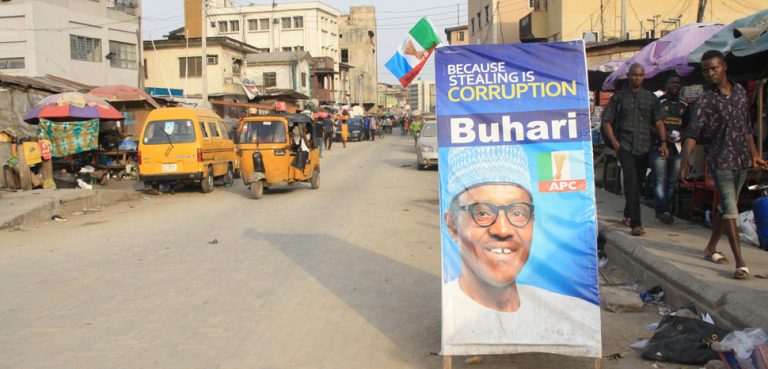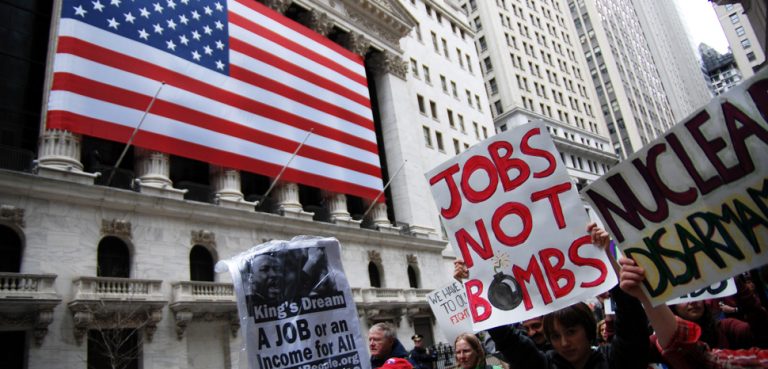The Chinese-owned mining company Ecuagoldmining has notified the government of Ecuador its intention to begin an arbitration process if the two sides cannot negotiate a solution on the status of a major mining operation that has been halted for almost two years due to local protests and local judicial decisions.
At first glance, this appears to be a standard investor-state dispute, particularly as protests against mining operations in developing states are quite common. Nevertheless, there are several factors at play that make this case worthy of greater analysis, including the size of the award that Ecuagoldmining is requesting, as well as Ecuador’s complex situation in international arbitration nowadays after leaving the International Centre for Settlement of Investment Disputes (ICSID) and terminating most of its Bilateral Investment Treaties (BITs).
The case: Ecuagoldmining v Ecuador
The Chinese companies Junefield Mineral Resources Limited and Hunan Gold Group created Ecuagoldmining South America S.A. to exploit and mine gold and silver of the Rio Blanco project in Ecuador. The area of the project covers 4,979 hectares and the estimated reserves are 605 thousand ounces of gold and 4.3 million ounces of silver.
Mining operations commenced in 2016, but they were soon affected by protests carried out by environmental activists and the inhabitants of the Cuenca region. Protesters argued that they had not been consulted about the mine, and that this project would have catastrophic environmental consequences on their homeland as it would pollute their sources of water.
Some of the protesters’ tactics included blocking a road that leads out of the mine, and some mining equipment was also destroyed.
In 2018, two major judicial decisions sided with the protesters. First, a local judge revoked the company’s mining license because the local population was not consulted. This ruling was ratified by another court which “recognized that the people of Molleturo had not been properly consulted.” The Ecuadorian government and the company argue that Rio Blanco is a strategic mining project, necessary to improve the country’s economy and local development.
According to the Ecuadorian media, mining at Rio Blanco has been paralyzed since May 2018.
The scope of the potential award
In February, Ecuagoldmining opened a dispute against Ecuador over the halted project. We are now in the middle of a six-month period in which the two parties can negotiate an end to their dispute or initiate an arbitration procedure.
The Chinese company has already invested around $20 million USD in the project and planned to invest another $69 million, the Ecuadorian media reports. According to NASDAQ, “If it does go to arbitration, the Ecuagoldmining will seek the full value of the gold that it expected to produce during the 11-year concession.” This would amount to $469 million.
Similar precedents
In order to properly understand this case, there are many precedents and legal issues to take into account. First of all, other arbitral tribunals have accepted the investor’s loss of profits claims by taking into account the entire period of the license agreements signed with the state.
One great example is P&ID v Nigeria, a company registered in the British Virgin Islands, which invested $40 million in a project in the African nation. The company was subsequently awarded $6.6 billion via an arbitration decision for the loss of profit that P&ID expected to earn over 20 years, according to the period of agreement. In this case, the Nigerian government was found to have breached its obligation to construct pipelines and to supply natural gas to P&ID’s production facility, under a Build and Operate Agreement.
An accumulated 7% interest was added to the $6.6 billion award, rendering the total sum of $9.5 billion. This constitutes 20% of Nigeria’s foreign reserves.
The legal basis of the compensation
The dispute of the PD&I v Nigeria case was subject to Nigerian law, which is a mixed legal system consisting of English law, common law, customary law, and Sharia (Islamic) law. Under common law, if the contract has been repudiated, the aggrieved party may also become entitled to an award for loss of profits. To put it simply: the measure of damages is the sum required to put party “A” in the position in which it would have been if party “B” had performed its obligation under the contract.
Thus, the Tribunal held that: ‘if the contract had been performed, P&ID would have received for 20 years an income from the sale of natural gas. The loss is therefore the value of the stream of net profit which P&ID would have made if the government had performed the contract according to its terms.’
Although this dispute was governed under Nigerian law, a breach of a bilateral investment treaty may also lead to a similar remedy. In investment arbitration, the most common remedy is monetary compensation. Moreover, under the International State Responsibility Act, other available remedies for the reparation of a wrongful act consists of restitution in kind or specific performance such as interim measure or interim injunction and satisfaction.
The possibility of compensation for lost profits has been recognized by the International Law Commission, specifically in the commentary to Responsibility of States for Internationally Wrongful Acts, Article 36, which stipulates that ‘The compensation shall cover any financially assessable damage including loss of profits insofar as it is established.’
Case in point, an ICSID tribunal in Amco v Indonesia held that in case the state’s illegal act destitutes the investor of income, damages will also consist of lost profits.
Therefore, in principle, an investor’s compensation will reflect gains it would have made and restore the situation that would have existed had the state’s unlawful act not been committed.
If found unlawful, measures such as cancelling and terminating the license agreements, may lead to investors claiming the compensation for the loss of profit for the same period as the period of the contract. This is what occurred in Nigeria, where the tribunal took into account the period of the agreement concluded with the state. Hence in a potential claim against Ecuador, the tribunal may award damages which could consist of 11 years lost profits.
Therefore, when providing investors with licenses and certificates for the extraction of natural resources, such as mining in case of Ecuador, and supply and processing of natural gas in case of Nigeria, states must be aware of the consequences of terminating license agreements.
Instead of concluding a long-term agreement, the state may consider concluding a contract for a shorter initial period with the possibility of extending the contract. Especially when the object of the contract concerns the environment and may trigger protests by the local population.
Limited grounds for appeal
It is worth noting that the awards concerning Investor-State disputes under ICSID Rules enjoy automatic enforcement and can only be annulled on limited grounds, while non-ICSID awards, i.e under UNCITRAL Arbitration Rules, are capable of being challenged and refused recognition and enforcement under the grounds set out in Article V of the New York Convention, which applies to foreign arbitral awards in international commercial arbitration.
Nevertheless, in the aforementioned P&ID v Nigeria case, under the dispute resolution clause, the applicable rules were the rules of the Nigerian Arbitration and Conciliation Act and the seat of the arbitration was London.
Hence, the investor had initiated proceedings in the English courts and sought to enforce the arbitral award as a judgment or order of the English court pursuant to Section 66 of the arbitration Act of 1996.
After the Commercial Court issued a decision in favor of the investor that allowed the enforcement of the arbitral award, the Nigerian government then turned to a London Court to appeal the enforcement decision of the arbitral award and requested a stay-of-enforcement during the appeal proceeding. However, this tactic is costly as well.
Pursuant to the English Arbitration Act of 1996, Section 70 (7), the court may order the payment of security pending the appeal. Therefore, the Nigerian government had to make a payment of USD$ 200 million pending the appeal. In its appeal, the Nigerian government argued that the award is ‘manifestly excessive’. However, the grounds via which an arbitral award can be challenged, or appealed, under the aforementioned Arbitration Act are narrow and limited to challenging an award due to issues with “substantive jurisdiction” of the arbitral tribunal under Section 67, serious irregularities causing substantial injustice under Section 68, which is subject to a high threshold, and finally appeal on a question of law under Section 69.
Generally, the courts where the enforcement of arbitral awards will be sought will not give consideration and weight as to whether an award is manifestly “excessive” and will only be bound by the options set forth in the relevant Arbitration Act.
Usually, the grounds of refusal of recognition and enforcement of arbitral awards are similar to those stated in Article V of the New York Convention, but due to the word ‘may’ in the Article, the grounds may differ. In this regard, the relevant arbitration law of the country where the enforcement of an arbitral award will be sought plays an ultimate role.
Should the Ecuagoldmining v Ecuador turn to an arbitration case, and if the verdict is subsequently challenged, it will be important to monitor where the legal proceedings will take place, as the seat of arbitration may heavily influence whether one party or the other emerges victorious.
Can Ecuador pay USD469 million?
It is necessary to stress the amount that Ecuagodmining could potentially receive if the case goes to arbitration: $469 million USD. This is no pocket change, particularly as Ecuador is suffering the devastating effects of COVID-19. At time of writing, the government has put the state-run airline company Tame in liquidation, another casualty of the pandemic on the commercial aviation industry.
In other words, Quito cannot afford to pay USD469 million, not to mention legal fees on an arbitration trial. While it is true that the events that halted Ecuagoldmining’s operations preceded the pandemic, the current global situation is an event of force majeure, which could postpone certain legal processes.
Ecuador’s previous stance re BITs and global arbitration
Apart from Ecuador’s complicated financial situation, the South American country is also in an awkward situation when it comes to global arbitration.
During the administration of President Rafael Correa (2007-2017), an outspoken critic of Washington, Ecuador was one of three South American countries that withdrew from ICSID in the first decade of the new century – the other two were Bolivia and the Bolivarian Republic of Venezuela. Moreover, Quito also terminated 16 of its bilateral investment treaties (BITs) in 2017, including ones with the capital exporting countries like Germany, Italy, the United Kingdom, the United States and even with its neighboring countries like Argentina, Bolivia, and Venezuela. Interestingly, Quito also terminated its BIT with the People’s Republic of China, signed in 1994.
The Correa administration’s dislike of BITs and arbitration was arguably caused by the massive financial losses the country suffered in previous investment arbitration disputes. Case in point, Quito lost a memorable case against the US oil company Occidental Petroleum Corp, and was ordered to pay a compensation of $2.3 billion USD, having incurred additional legal expenses worth $94 million (the award was later reduced to under a billion dollars).
Following this defeat, a national investment treaties audit commission was established (CAITISA) which, unsurprisingly, recommended to terminate all of Ecuador’s BITs.
The sunset clause in the Ecuador – China BIT
When the negotiation period between Ecuagoldmining and Ecuador was announced, Deputy Mining Minister Enrique Gallegos-Anda stated that “the six-month process is the first step in a potential arbitration as laid out in an investment treaty between Ecuador and China.
This statement deserves a little more analysis. As we mentioned in the previous section, Ecuador has unilaterally terminated its BIT with China. However, this does not prevent Ecuagoldmining from filing a claim against Ecuador by virtue of the BIT’s Art.13.4, which stipulates that the treaty will continue to be effective for a period of 10 years from the date of the termination in respect of investments made before that date.
Such a provision is called a sunset clause and it is applied in case of a unilateral termination of a treaty. The clause’s objective is to provide for a survival period which ensures that the investor’s rights will be protected despite the termination of the treaty.
Since Ecuagoldmining began its operations in 2016, before the BITs termination took place in 2017, the Chinese consortium is able to file the arbitration claim pursuant to the sunset clause.
Change of leadership, change of attitude
Since coming to power, President Lenin Moreno (2017-present) has maintained a positive disposition towards US and European governments and financial institutions. In other words, the current presidential administration has essentially carried out a 180 degree turn in its foreign policy, and this will affect the country’s relations with foreign investors and international arbitration institutions.
The Ecuadorian daily El Comercio reported in February that the Moreno administration is negotiating new BITs to replace the cancelled ones, but the process has been paralyzed for the past three years (since Moreno came to power) due to some decrees passed by the country’s Constitutional Court. The report explained that “during the visit to China by the first president, Lenín Moreno, at the end of 2018, a memorandum of understanding was signed with the intention of resuming negotiations, leading to a possible new investment treaty.” However, a new BIT has yet to be signed.
The article goes on to explain that: “In order to partially solve the vacuum generated by the lack of BIT, the government included in the Law for the Productive Promotion and Attraction of Investments, in force since August 2018, an article that allows investment contracts that exceed the $10 million, the State agrees national or international arbitration.”
It is unclear when these legal obstacles will be surmounted so that the country can sign new BITs, but at the very least, it is important to stress that the current administration is focused on attracting investors and promoting trade. In April, the congress ratified a trade agreement with the European Free Trade Association.
Similarly, there is no information about whether the current administration will attempt to rejoin ICSID.
Conclusions
Ecuagoldmining v Ecuador is an example of why states must be aware that if they conclude long-term contracts, a breach of them could lead to massive financial penalties. After all, the period of the agreement influences the amount of the compensation, under the umbrella of loss of profit.
This is demonstrated by PD&I v Nigeria, in which a $40 million investment turned into a $6.6 billion award plus interest rates. Similarly, Ecuagoldmining’s estimated $20 million investment so far could turn into a $469 million award, should it emerge victorious in an arbitration proceeding. For a country that will economically suffer from COVID-19 for the foreseeable future, and a Moreno administration that just last year had to flee from Quito to Guayaquil to escape angry protests, this potential award would be devastatingly crippling.
Wilder Alejandro Sanchez is an analyst who focuses on geopolitical, military, and cybersecurity issues. Follow him on Twitter: @W_Alex_Sanchez.
Lucia Scripcari is a Moldovan citizen and a LLM student at Koç University (Istanbul).
The views expressed in this article are those of the authors alone and do not necessarily reflect those of Geopoliticalmonitor.com or any institutions with which the authors are associated.




